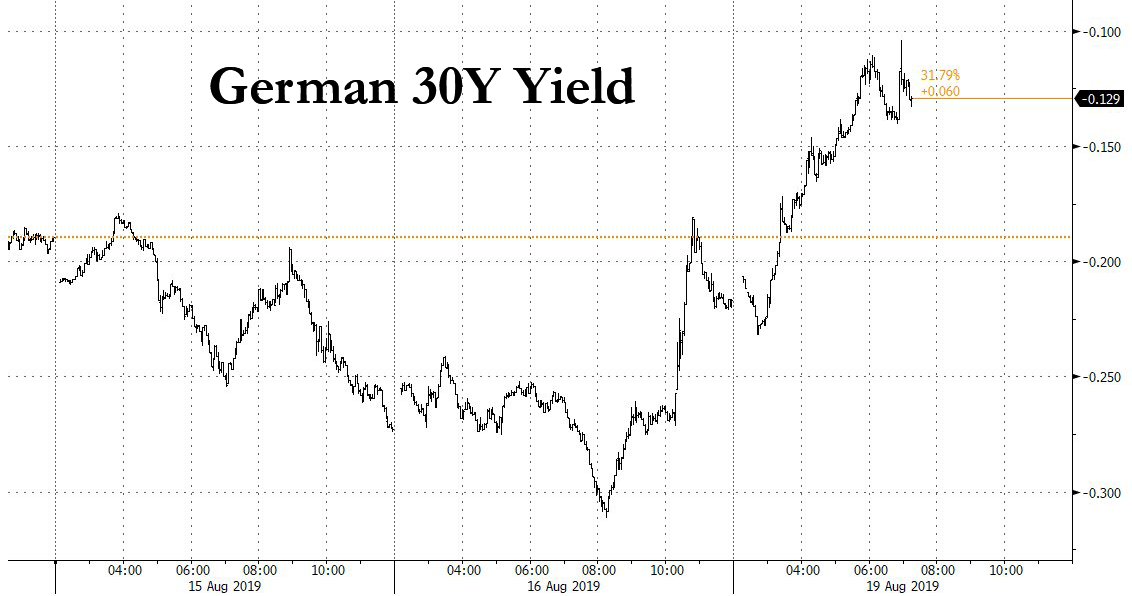Nearly two weeks after Der Spiegel sent its first trial balloon about the prospects that the German government might crank up its fiscal stimulus if Europe’s largest economy slides into recession (which, as we explained last week, is already on the cusp of doing), the trial balloons have crossed the Atlantic.
Bloomberg reported on Monday that the German government is preparing to embrace new fiscal stimulus measures should its economy stumble into a deep recession, “citing two people with direct knowledge of the matter.”
Last time around, when the German economy succumbed to the global financial panic during the great financial crisis, the German government similarly doled out bonuses to prod Germans to buy new cars. Now, the government is studying incentives to improve energy efficiency of homes, promote short-term hiring and boost income through social welfare.
Berlin could inject 50 billion euros ($55 billion) of extra spending, Finance Minister Olaf Scholz said on Sunday, adding that Germany has the fiscal strength to counter any future economic crisis “with full force.”
Strategists at Mizuho have pointed out that these reports are probably over-hyped, and that the ECB would likely re-launch QE before Germany turns on the fiscal taps.
The point which is being missed is that said German fiscal stimulus is conditional on a recession, and existing law already allows for this. The ECB would probably restart QE before the German fiscal taps were at risk of being nudged open. We suspect the market is simply trading the headlines in a kneejerk manner and the summer liquidity is allowing for the moves to go unfaded. As the Bund swap spread is now tighter than it was in the QE regime, this seems to be once again inconsistent with market expectations of an ECB monetary easing “package.”
One strategist for CMC markets questioned whether this jawboning will continue to have an impact.
“You have just got a little bit of portfolio readjustment, a resetting of expectations. The big question is whether it can last,” said Michael Hewson, chief market strategist at CMC Markets. “Talking about fiscal stimulus in Germany is one thing, doing it is something else.”
As a reminder, under the German constitution, net federal debt can increase by only 0.35% of output if there is GDP growth, but since the rules can be relaxed during recession.
But the news sent the 30-year bund yield higher, at a time when the entire German yield curve remains below zero (i.e. the market is effectively begging the government to borrow more).
via ZeroHedge News https://ift.tt/2ZhZxQg Tyler Durden
